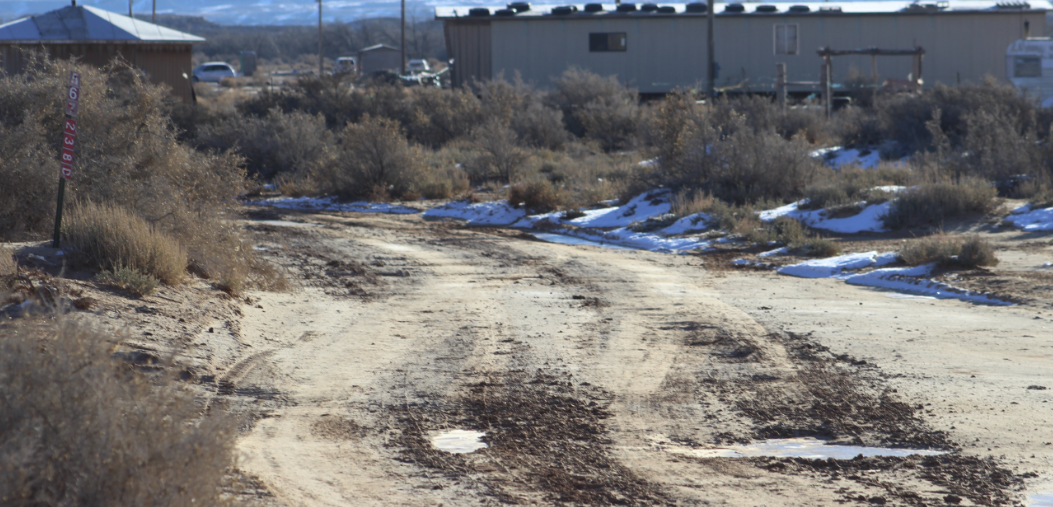
- Details
- By Levi Rickert
The National Congress of American Indians (NCAI) on Friday praised President Biden’s new executive order that addresses racial inequity in underserved communities.
President Joe Biden on Thursday signed a new executive order, “Further Advancing Racial Equity and Support for Underserved Communities Through the Federal Government.”
The executive order is intended to address systemic barriers that hold communities of color back from prospering.
“The President’s decision to sign the Executive Order to Strengthen Racial Equity and Support for Underserved Communities Across the Federal Government builds upon a number of initiatives in recent years to help improve Native peoples’ access to the programs, opportunities, and services that many take for granted,” NCAI President Fawn Sharp (Quinault Indian Nation) said in a statement to Native News Online on Friday.
“NCAI stands ready and willing to continue working with both the Administration and Congress to maximize these opportunities—and others like them—to bring about meaningful and lasting positive change for our people,” Sharp said.
Thursday’s executive order is the second directive by the President to address racial inequity. Biden on his first day in office signed Executive Order 13985, which directed funding to places like tribes and historically Black colleges and universities and programs to close the racial disparity gaps in employment and housing opportunities.
While limited successes, Biden feels the federal government needs to better address the racial inequity issue.
“Members of underserved communities — many of whom have endured generations of discrimination and disinvestment — still confront significant barriers to realizing the full promise of our great Nation, and the Federal Government has a responsibility to remove these barriers,” Biden said in a statement.
The new executive order asks federal agencies to create annual plans that explain what steps they’ll take to "address the barriers underserved communities may face in accessing and benefiting from the agency’s policies.”
The executive order says “achieving racial equity and support for underserved communities is not a one-time project. It must be a multi-generational commitment, and it must remain the responsibility of agencies across the Federal Government.”
The order defines underserved communities to include: Black, Latino, Indigenous and Native American, Asian American, Native Hawaiian, and Pacific Islander persons and other persons of color; members of religious minorities; women and girls; LGBTQI+ persons; persons with disabilities; persons who live in rural areas; persons who live in United States Territories; and persons otherwise adversely affected by persistent poverty or inequality.
“It is imperative to reject the narrow, cramped view of American opportunity as a zero-sum game,” Biden said. “When any person or community is denied freedom, dignity, and prosperity, our entire Nation is held back. But when we lift each other up, we are all lifted up.”
More Stories Like This
Native News Weekly (August 25, 2024): D.C. BriefsUS Presidents in Their Own Words Concerning American Indians
Two Murdered on Colville Indian Reservation
NDAA passes House; Lumbee Fairness Act Advances
NFL, Vikings to Host Native All-American Game, Youth Flag Clinic
Help us defend tribal sovereignty.
At Native News Online, our mission is rooted in telling the stories that strengthen sovereignty and uplift Indigenous voices — not just at year’s end, but every single day.
Because of your generosity last year, we were able to keep our reporters on the ground in tribal communities, at national gatherings and in the halls of Congress — covering the issues that matter most to Indian Country: sovereignty, culture, education, health and economic opportunity.
That support sustained us through a tough year in 2025. Now, as we look to the year ahead, we need your help right now to ensure warrior journalism remains strong — reporting that defends tribal sovereignty, amplifies Native truth, and holds power accountable.
 The stakes couldn't be higher. Your support keeps Native voices heard, Native stories told and Native sovereignty defended.
The stakes couldn't be higher. Your support keeps Native voices heard, Native stories told and Native sovereignty defended.
Stand with Warrior Journalism today.
Levi Rickert (Potawatomi), Editor & Publisher


